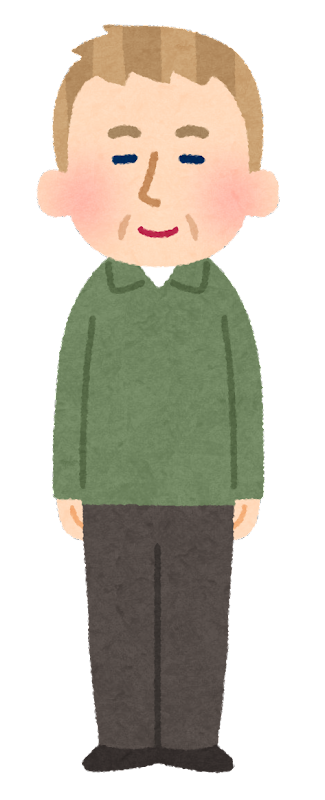ライフハックとしてではなく、英語学習にも極めて有用なのが、著名人が10分程度のプレゼンを行うTEDです。
TED Talksとは、あらゆる分野のエキスパートたちによるプレゼンテーションを無料で視聴できる動画配信サービスのことです。10年ほど前にサービスが開始されてから、政治、心理学、経済、日常生活などの幅広いコンテンツが視聴できることから人気を集めています。
RareJob English Lab
TEDは4000を超える膨大な数の動画があります。しかし慣れないうちは、動画の探し方や視聴のコツが分かりませんよね。この記事では、数多くのTEDを見てきた管理人(塩@saltandshio)が、心を揺さぶられたトークをあらすじと一緒にご紹介します。
ビジネス英会話を効率よく身につけたい方におすすめスクール
シェーン英会話
シェーンは1977年の創業以来、ネイティブ講師が英語を英語で教える「直接教授法」を採用しています。首都圏におけるスクール拠点数は、ネイティブ講師の英会話スクールでNo.1。駅から近いスクールが多いので通いやすく時間を有効に使えます。
スピークバディ パーソナルコーチング
1日1時間の短期集中トレーニングで、あなたの英語力向上をコーチが全力でサポートします。あなたの英語の世界が、劇的に変わります。
ダニエル・レヴィティン:ストレスを受けても平静を保つ方法
ストレスを受けたとき、あなたはベストの状態ではありません。事実、何千年もの進化を経て、脳はストレスを受け平静を失うとコルチゾールを放出し、合理的・論理的思考ができなくなります。おそらくは、ライオンに襲われた場合などに生き延びるられるようにするためです。神経科学者のダニエル・レヴィティンはストレス下で思考能力が低下した時に重大な間違いを避ける方法があると考えます―「事前分析」です。「皆 時々失敗をします」と彼は言います。「事前分析とはどんな失敗が起こりうるのかを事前に考えることなのです。」(約12分)。Daniel Levitin / How to stay calm when you know you’ll be stressed.
[PR]無料体験レッスン実施中!全国208校、創業40年の老舗英会話スクール【シェーン英会話】人はストレスを受けると思考能力が落ちる
気温は氷点下40度。
時刻は深夜、外は雪が降り続いている、翌日は研究会のためパスポートを持って早朝に出発する飛行機に乗らなければいけない。しかし上着のポケットをいくら探しても家の鍵がない!そんなとき、あなたならどうしますか?
神経科学者のダニエル・レヴィティンは、まさにこの状況に追い込まれました。ちなみにダニエル・レヴィティンは次のような行動を取って、このトラブルをなんとか切り抜けました。
- 大きな石を探して地下室の窓を壊す
- ガラスの破片を片付ける
- 段ボールで応急処置をする
- 翌日、請負業者に電話をかけて修理を依頼する
なぜ窓ガラスを割ったかというと、真夜中に鍵屋を読んでドアを開けてもらうよりも、いま窓ガラスを割って家に入り、あとで修理したほうがベストだと思ったからです。しかし、無事に家に入れたものの(4)のことで頭がいっぱいになっていたダニエル・レヴィティンは、翌朝に空港に着いたあとでパスポートを家に忘れたことに気付きました(ちなみに、家に急いで引き返したおかげで、飛行機には間に合いました)。
しかし、予約した席は他の人に変わっていたため、不便な席に座らなければならず、寝ようと思っても寝れなかったダニエル・レヴィティンは、今回のトラブルについて飛行機の中で延々と考え続けました。
そして悪いことが起きるのを防ぐため、私に何ができるのか、どんな手立てがあるのか考え始めました。少なくとも、もし悪いことが起きても、完全な大失敗になるリスクを最小限に抑えるのです。
And I started wondering, are there things that I can do, systems that I can put into place, that will prevent bad things from happening? Or at least if bad things happen, will minimize the likelihood of it being a total catastrophe.
このように、人はストレスが加わると思考能力が著しく落ちます。判断力低下とも呼ばれ、ひどい場合には心療内科の措置が必要になることもあります。
そもそもストレスとは、外部から刺激を受けたときに生じる緊張状態のことです。外部からの刺激には、天候や騒音などの環境的要因、病気や睡眠不足などの身体的要因、不安や悩みなど心理的な要因、そして人間関係がうまくいかない、仕事が忙しいなどの社会的要因があります。つまり、日常の中で起こる様々な変化が、ストレスの原因になるのです。たとえば、進学や就職、結婚、出産といった喜ばしい出来事でも、変化であり刺激ですから、実はストレスの原因になります。
ストレスって何? / 厚生労働省
こうした突発的なトラブルに対して、冷静にいるためにはどうすればいいのでしょうか。
[PR]まずは無料カウンセリング”続けるため”の オンライン英語コーチ「スピークバディ パーソナルコーチング」「事前分析」とは転ばぬ先の杖
飛行機の中で、トラブルへの対応策を考えていたダニエル・レヴィティンでしたが、結局は結論が出ませんでした。そんなダニエル・レヴィティンの話を聞いて、「それなら事前分析をしたらいいよ」と言ったのは、同僚でノーベル賞受賞者のダニー・カーネマンでした。
ダニエル・カーネマン(Daniel Kahneman)は、イスラエル・アメリカ合衆国の心理学者、行動経済学者。経済学と認知科学を統合した行動ファイナンス理論及びプロスペクト理論で著名。ノーベル経済学賞を受賞したことについて、カーネマンは「心理学者はノーベル賞受賞を喜びはするが、私を特別な存在にするとは思わない」と述べている。
ダニエル・カーネマン(Daniel Kahneman) / Wikipediaより
事後分析はポスト・ホック解析とも呼ばれ、「実験が終わった後にデータを解析しなおすこと(蛭川研究室新館 / 明治大学蛭川研究室の非公式サイトより)」です。では、事前分析とはなんなのでしょうか。
ダニーが言うには 「事前分析」は、将来を見越して発生しうる全ての問題を洗い出し、それが起こらないように、もしくは損害を最小限にする方法をみつけることです。
Well, in the pre-mortem, Danny explained, you look ahead and you try to figure out all the things that could go wrong, and then you try to figure out what you can do to prevent those things from happening, or to minimize the damage.
では、いったいどうすれば「事前分析」が出来るのでしょうか。その具体的で簡単な方法を2つ、ダニエル・レヴィティンは紹介しています。それが
- 定位置を決める
- リスクを前もって予測する
です。順番にみていきましょう。
[PR]しちだの魔法ペンなら35日でバイリンガルに!楽天4部門1位の英会話!<七田式>事前分析(1)定位置を決める
まずは、「物の定位置を決める」です。
家でなくしやすい物は置き場所を決めます。これは当たり前に聞こえますし、その通りです。しかし空間記憶の働きに基づいた、これを裏付ける沢山の科学的分析があります。
Around the home, designate a place for things that are easily lost. Now, this sounds like common sense, and it is, but there’s a lot of science to back this up, based on the way our spatial memory works.
脳の中にある「海馬」と呼ばれる組織は、重要な物の場所を記憶するために何千年にも渡って進化してきた部分です。ロンドンのタクシー運転手の脳の海馬は、一般の人よりも拡大していることで知られています。
海馬は物探しの為に絶妙に進化した脳の機能ですが、移動するものにはあまり適しません。これが、私たちが家の中でものをなくす理由です。そうならないためにも、家の中でよく使うものは置き場所を決めましょう。また、外出中や旅行中に必要になるパスポートや運転免許証、クレジットカードなどは写真に撮ってクラウド上に保存すると、突然のトラブルにも対応できるようになるでしょう。
[PR]知って得する、知らないと損をする!すぐに役立つ相手に合った「伝え方」のコツ!事前分析(2)リスクを前もって予測する
つぎに、リスクを前もって予測することです。
これは全ての医療上の決定や、実際には財務や、社会的意志決定にも適用できます。どんな決定をするにしても、事実の適正評価が役立ちます。
But this stands as a proxy for all kinds of medical decision-making, and indeed for financial decision-making, and social decision-making — any kind of decision you have to make that would benefit from a rational assessment of the facts.
たとえば、病院に行ってお医者さんから「コレステロール値が少し高いですね」と言われたとしましょう。そして、コレステロール値を下げる薬の処方を提案されたとします。この時点で、「統計値を聞きましょう」とダニエル・レヴィティンは勧めています。
ここで言う統計値とは、実際にコレステロール値が高いことで起きるリスクの値と、その薬を飲んでどれくらいの割合の人が効くのかという値です。さらに、薬を飲むことによってどれくらいの割合で副作用が起きるのかも重要です。
「事前分析」の考え方は、話し合いを進めるために聞くかもしれない質問を前もって考えることです。その場で全てを考えたくないでしょう。生活の質などについても考えたいはずです。大抵 選択肢があるからです。
痛みはないが短命で良いか、最期までかなりの痛みがあっても長生きしたいのか、こうしたことは家族や愛する人達と、今、話して考えることです。
So the idea of the pre-mortem is to think ahead of time to the questions that you might be able to ask that will push the conversation forward. You don’t want to have to manufacture all of this on the spot. And you also want to think about things like quality of life.
Because you have a choice oftentimes, do you I want a shorter life that’s pain-free, or a longer life that might have a great deal of pain towards the end? These are things to talk about and think about now, with your family and your loved ones.
これは病気に限った話ではありません。超高齢化社会が進む日本では親の介護の問題が深刻化してきています。2022年9月17日の日経新聞でも、「認知症での金融資産凍結リスク 関西で26万人、計9兆円」というニュースが報じられています。このごろ、成年後見制度という言葉をよく耳にしませんか?
認知症、知的障害、精神障害などの理由でひとりで決めることが心配な方々は、財産管理(不動産や預貯金などの管理、遺産分割協議などの相続手続など)や身上保護(介護・福祉サービスの利用契約や施設入所・入院の契約締結、履行状況の確認など)などの法律行為をひとりで行うのがむずかしい場合があります。また、自分に不利益な契約であることがよくわからないままに契約を結んでしまい、悪質商法の被害にあうおそれもあります。
成年後見制度とは / 厚生労働省
このようなひとりで決めることに不安のある方々を法的に保護し、支援するのが成年後見制度です。
いざという時に慌てないために、親が元気なうちに話し合いを行い、諸手続きを済ませておくことは、将来的なトラブルを未然に防ぐためにも大切なことです。これも事前分析のひとつといえるでしょう。
[PR]検定試験合格者累計140万人!スマホ対応☆国家資格ほか資格取得ならSMART合格対策講座まとめ:トラブルを事前に予測しておこう
残念ながら、ストレスがかかった状態で人は冷静な判断をすることは出来ません。だからこそ、考えられるあらゆる状況に対して、前もって考えることを身に付ける必要があります。
ここで重要なのは、私達は皆、欠点があると認識することです。皆、時々失敗をします。
「事前分析」はどんな失敗に対しても前もって考えること、損害を最小限にする方法を導入すること、最初から悪いことが起きないようにすることです。
I think the important point here is recognizing that all of us are flawed. We all are going to fail now and then.
The idea is to think ahead to what those failures might be, to put systems in place that will help minimize the damage, or to prevent the bad things from happening in the first place.
出かける時になって、家の鍵がない、スマートフォンをどこに置いたか忘れてしまったと言う人は、まずは定位置を決めるところから始めてみてはいかがでしょうか。物があり過ぎて分からないという人は、掃除するところから始めると良いかもしれません。
/単品回収も格安で対応。どんな物でも1点から対応可能\

英語全文
A few years ago, I broke into my own house. I had just driven home, it was around midnight in the dead of Montreal winter, I had been visiting my friend, Jeff, across town, and the thermometer on the front porch read minus 40 degrees — and don’t bother asking if that’s Celsius or Fahrenheit, minus 40 is where the two scales meet — it was very cold. And as I stood on the front porch fumbling in my pockets, I found I didn’t have my keys.
<全文を読む>▼クリック▼
So, desperate and freezing cold, I found a large rock and I broke through the basement window, cleared out the shards of glass, I crawled through, I found a piece of cardboard and taped it up over the opening, figuring that in the morning, on the way to the airport, I could call my contractor and ask him to fix it. This was going to be expensive, but probably no more expensive than a middle-of-the-night locksmith, so I figured, under the circumstances, I was coming out even.
Now, I’m a neuroscientist by training and I know a little bit about how the brain performs under stress. It releases cortisol that raises your heart rate, it modulates adrenaline levels and it clouds your thinking. So the next morning, when I woke up on too little sleep, worrying about the hole in the window, and a mental note that I had to call my contractor, and the freezing temperatures, and the meetings I had upcoming in Europe, and, you know, with all the cortisol in my brain, my thinking was cloudy, but I didn’t know it was cloudy because my thinking was cloudy.
And it wasn’t until I got to the airport check-in counter, that I realized I didn’t have my passport.
So I raced home in the snow and ice, 40 minutes, got my passport, raced back to the airport, I made it just in time, but they had given away my seat to someone else, so I got stuck in the back of the plane, next to the bathrooms, in a seat that wouldn’t recline, on an eight-hour flight. Well, I had a lot of time to think during those eight hours and no sleep.
And I started wondering, are there things that I can do, systems that I can put into place, that will prevent bad things from happening? Or at least if bad things happen, will minimize the likelihood of it being a total catastrophe. So I started thinking about that, but my thoughts didn’t crystallize until about a month later. I was having dinner with my colleague, Danny Kahneman, the Nobel Prize winner, and I somewhat embarrassedly told him about having broken my window, and, you know, forgotten my passport, and Danny shared with me that he’d been practicing something called prospective hindsight.
It’s something that he had gotten from the psychologist Gary Klein, who had written about it a few years before, also called the pre-mortem. Now, you all know what the postmortem is. Whenever there’s a disaster, a team of experts come in and they try to figure out what went wrong, right? Well, in the pre-mortem, Danny explained, you look ahead and you try to figure out all the things that could go wrong, and then you try to figure out what you can do to prevent those things from happening, or to minimize the damage.
So what I want to talk to you about today are some of the things we can do in the form of a pre-mortem. Some of them are obvious, some of them are not so obvious. I’ll start with the obvious ones.
Around the home, designate a place for things that are easily lost. Now, this sounds like common sense, and it is, but there’s a lot of science to back this up, based on the way our spatial memory works. There’s a structure in the brain called the hippocampus, that evolved over tens of thousands of years, to keep track of the locations of important things — where the well is, where fish can be found, that stand of fruit trees, where the friendly and enemy tribes live. The hippocampus is the part of the brain that in London taxicab drivers becomes enlarged. It’s the part of the brain that allows squirrels to find their nuts. And if you’re wondering, somebody actually did the experiment where they cut off the olfactory sense of the squirrels, and they could still find their nuts. They weren’t using smell, they were using the hippocampus, this exquisitely evolved mechanism in the brain for finding things. But it’s really good for things that don’t move around much, not so good for things that move around. So this is why we lose car keys and reading glasses and passports. So in the home, designate a spot for your keys — a hook by the door, maybe a decorative bowl. For your passport, a particular drawer. For your reading glasses, a particular table. If you designate a spot and you’re scrupulous about it, your things will always be there when you look for them.
What about travel? Take a cell phone picture of your credit cards, your driver’s license, your passport, mail it to yourself so it’s in the cloud. If these things are lost or stolen, you can facilitate replacement.
Now these are some rather obvious things. Remember, when you’re under stress, the brain releases cortisol. Cortisol is toxic, and it causes cloudy thinking. So part of the practice of the pre-mortem is to recognize that under stress you’re not going to be at your best, and you should put systems in place.
And there’s perhaps no more stressful a situation than when you’re confronted with a medical decision to make. And at some point, all of us are going to be in that position, where we have to make a very important decision about the future of our medical care or that of a loved one, to help them with a decision.
And so I want to talk about that. And I’m going to talk about a very particular medical condition. But this stands as a proxy for all kinds of medical decision-making, and indeed for financial decision-making, and social decision-making — any kind of decision you have to make that would benefit from a rational assessment of the facts.
So suppose you go to your doctor and the doctor says, “I just got your lab work back, your cholesterol’s a little high.” Now, you all know that high cholesterol is associated with an increased risk of cardiovascular disease, heart attack, stroke. And so you’re thinking having high cholesterol isn’t the best thing, and so the doctor says, “You know, I’d like to give you a drug that will help you lower your cholesterol, a statin.” And you’ve probably heard of statins, you know that they’re among the most widely prescribed drugs in the world today, you probably even know people who take them. And so you’re thinking, “Yeah! Give me the statin.”
But there’s a question you should ask at this point, a statistic you should ask for that most doctors don’t like talking about, and pharmaceutical companies like talking about even less. It’s for the number needed to treat. Now, what is this, the NNT? It’s the number of people that need to take a drug or undergo a surgery or any medical procedure before one person is helped. And you’re thinking, what kind of crazy statistic is that? The number should be one. My doctor wouldn’t prescribe something to me if it’s not going to help. But actually, medical practice doesn’t work that way. And it’s not the doctor’s fault, if it’s anybody’s fault, it’s the fault of scientists like me. We haven’t figured out the underlying mechanisms well enough. But GlaxoSmithKline estimates that 90 percent of the drugs work in only 30 to 50 percent of the people. So the number needed to treat for the most widely prescribed statin, what do you suppose it is? How many people have to take it before one person is helped? 300. This is according to research by research practitioners Jerome Groopman and Pamela Hartzband, independently confirmed by Bloomberg.com. I ran through the numbers myself. 300 people have to take the drug for a year before one heart attack, stroke or other adverse event is prevented.
Now you’re probably thinking, “Well, OK, one in 300 chance of lowering my cholesterol. Why not, doc? Give me the prescription anyway.” But you should ask at this point for another statistic, and that is, “Tell me about the side effects.” Right? So for this particular drug, the side effects occur in five percent of the patients. And they include terrible things — debilitating muscle and joint pain, gastrointestinal distress — but now you’re thinking, “Five percent, not very likely it’s going to happen to me, I’ll still take the drug.” But wait a minute. Remember under stress you’re not thinking clearly. So think about how you’re going to work through this ahead of time, so you don’t have to manufacture the chain of reasoning on the spot. 300 people take the drug, right? One person’s helped, five percent of those 300 have side effects, that’s 15 people. You’re 15 times more likely to be harmed by the drug than you are to be helped by the drug.
Now, I’m not saying whether you should take the statin or not. I’m just saying you should have this conversation with your doctor. Medical ethics requires it, it’s part of the principle of informed consent. You have the right to have access to this kind of information to begin the conversation about whether you want to take the risks or not.
Now you might be thinking I’ve pulled this number out of the air for shock value, but in fact it’s rather typical, this number needed to treat. For the most widely performed surgery on men over the age of 50, removal of the prostate for cancer, the number needed to treat is 49. That’s right, 49 surgeries are done for every one person who’s helped. And the side effects in that case occur in 50 percent of the patients. They include impotence, erectile dysfunction, urinary incontinence, rectal tearing, fecal incontinence. And if you’re lucky, and you’re one of the 50 percent who has these, they’ll only last for a year or two.
So the idea of the pre-mortem is to think ahead of time to the questions that you might be able to ask that will push the conversation forward. You don’t want to have to manufacture all of this on the spot. And you also want to think about things like quality of life. Because you have a choice oftentimes, do you I want a shorter life that’s pain-free, or a longer life that might have a great deal of pain towards the end? These are things to talk about and think about now, with your family and your loved ones. You might change your mind in the heat of the moment, but at least you’re practiced with this kind of thinking.
Remember, our brain under stress releases cortisol, and one of the things that happens at that moment is a whole bunch on systems shut down. There’s an evolutionary reason for this. Face-to-face with a predator, you don’t need your digestive system, or your libido, or your immune system, because if you’re body is expending metabolism on those things and you don’t react quickly, you might become the lion’s lunch, and then none of those things matter. Unfortunately, one of the things that goes out the window during those times of stress is rational, logical thinking, as Danny Kahneman and his colleagues have shown. So we need to train ourselves to think ahead to these kinds of situations.
I think the important point here is recognizing that all of us are flawed. We all are going to fail now and then. The idea is to think ahead to what those failures might be, to put systems in place that will help minimize the damage, or to prevent the bad things from happening in the first place.
Getting back to that snowy night in Montreal, when I got back from my trip, I had my contractor install a combination lock next to the door, with a key to the front door in it, an easy to remember combination. And I have to admit, I still have piles of mail that haven’t been sorted, and piles of emails that I haven’t gone through. So I’m not completely organized, but I see organization as a gradual process, and I’m getting there.
Thank you very much.
<閉じる>
\ ほかにも気になるトークが満載! /








